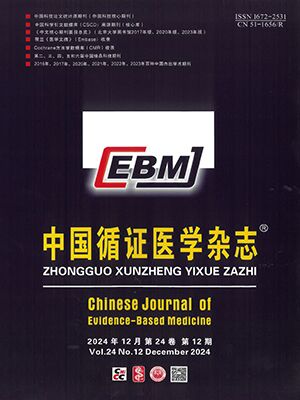Objective To determine the benefits of an invasive compared to a conservative strategy for treating unstable anguba (UA)/ non-ST-elevation myocardial infarction (NSTEMI).
Methods We searched The Cochrane Library (Issue 4, 2009), MEDLINE (1996 to September 2009), EMbase (1974 to September 2009), CBM (1989 to 2009), CNKI (1997 to 2009), and VIP (1989 to 2009). The quality of the included studies was critically evaluated. Data analyses were performed using the Cochrane Collaboration’s RevMan 5.0 software.
Results Seven randomized controlled trials involving 11 394 patients met the inclusion criteria. The results meta-analyses showed the incidence of all-cause mortality at six months follow-up was lower in the early invasive group compared with the conservative group (RR=0.75, 95%CI 0.61 to 0.92, P=0.007); the relative risk of myocardial infarction was significantly decreased in the early invasive group (RR=0.74, 95%CI 0.63 to 0.87); there was a reduction in rehospitalization for unstable angina in the invasive group (RR=0.66, 95%CI 0.61 to 0.73, P lt;0.000 01); the invasive strategy was associated with a two-fold increase in the relative risk of PCI-related myocardial infarction (as variably defined). There was not a significant increase in bleeding by an invasive strategy at six months follow-up, but, a routine invasive strategy was associated with a significantly higher bleeding rate at 1-year follow-up (RR=2.22, 95%CI 1.55 to 3.17, P lt;0.000 1). Patients with elevated cardiac biomarker levels at baseline benefited more from routine intervention, with no significant benefit observed in patients with negative baseline marker levels.
Conclusion An early invasive strategy is preferable to a conservative strategy in the treatment of UA/NSTEMI, especially higher-risk patients with elevated cardiac biomarker benefit more from invasive strategy. In addition, complications such as procedure-MI and bleeding must be paid great attention to.
Citation: YU Zixiang,MA Yitong,YANG Yining,HUANG Ding,MA Xiang,LI Xiaomei,CHEN You. Benefit of Early Invasive Therapy in Unstable Angina and Non-ST-Elevation Myocardial Infarction: A Systematic Review. Chinese Journal of Evidence-Based Medicine, 2010, 10(11): 1331-1337. doi: 10.7507/1672-2531.20100591 Copy
Copyright © the editorial department of Chinese Journal of Evidence-Based Medicine of West China Medical Publisher. All rights reserved




